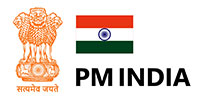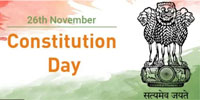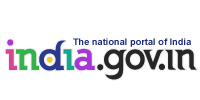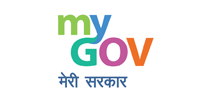ICAR-CIRCOT Organized a Webinar on ‘Fibre Processing and Value Addition’ to commemorate 75th Year of India’s Independence ‘Azadi ka Amrut Mahotsav’.
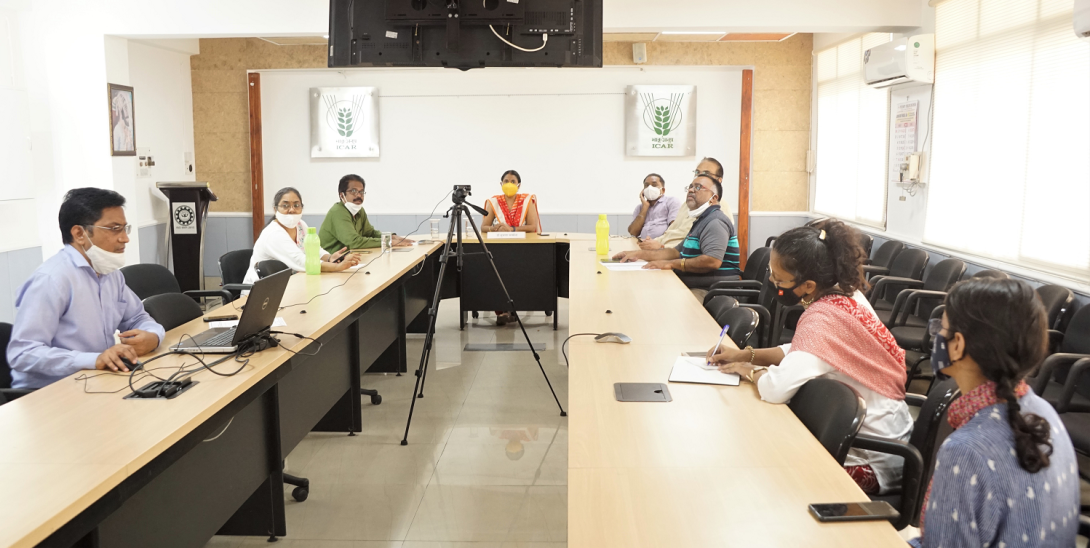
ICAR- Central Institute for Research on Cotton Technology, Mumbai organized a Webinar on Fibre Processing and Value Addition on 31st May, 2021 as a part of DARE, ICAR campaign for commemorating 75th Year of India’s Independence ‘Azadi ka Amrut Mahotsav’.
The meeting started with ICAR Song. Dr Sujata Saxena, Director (Acting), ICAR-CIRCOT welcomed all the delegates and highlighted ICAR-CIRCOT’s contribution towards the improvement of cotton quality for over nine decades. Processing is the key to value addition as every processing step adds to the value and in cotton value chain, the magnitude of value addition can be to the tune of 10-25 times while converting raw cotton to finally finished textile products depending upon the processing steps. Earnings from the export of dyed and printed cotton textiles was a major source of wealth creation for the country in olden days but during British rule, we became dependent on imports for textiles. The situation has changed now and India is the top cotton producer in the world and a net exporter of cotton. Indian textile industry has also undergone tremendous development and is now contributing to the exports earnings. We should try to process more and more of our produce in the country for value addition and better returns. In this context, this webinar topic is very much appropriate to textile industry, entrepreneurs and farmers.
The lecture series in this webinar covered the topics Mechanical Processing of Fibres, Cotton Quality and Fibre Processing and Cotton Scenario in Pandemic (Covid-19). Dr S.K. Shukla, Principal Scientist, GTC, ICAR-CIRCOT, delivered the presentation on “Mechanical Processing of Fibres” explaining the practical difficulties faced by ginning industries in processing of mechanically harvested cotton. He highlighted that though mechanical harvesters are available, these are not suitable for harvesting the current cotton varieties which are bushy, tall and do not have synchronized boll opening and the currently proposed defoliant is also not suitable which results in very high trash in mechanically harvested cotton which creates lots of problem in processing. He spoke about ICAR-CIRCOT’s technological interventions to reduce the trash and enhance the cotton quality.
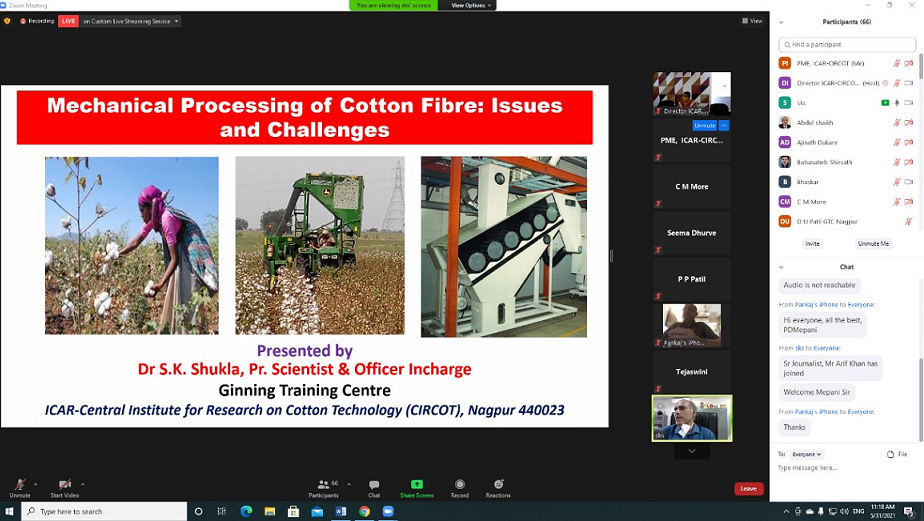
In the second lecture on “Cotton Quality and Fibre processing”, Dr P. Jagajanantha, Scientist, QEID, ICAR-CIRCOT explained about the importance of cotton fibre quality and its impact on the spinning process. The role of ICAR-CIRCOT in Cotton quality Evaluation was also highlighted. Dr C. .Sundramoorthy, Senior Scientist, TTD, ICAR-CIRCOT in his presentation on “Cotton Scenario in Pandemic (Covid-19)” elucidated on the global and Indian cotton scenario and its resilience in the time of pandemic.
This webinar was attended by a number of cotton researchers, stake-holders from Industry and trade, farmers, agri-preneurs, ICAR-CIRCOT staff and media persons. The event was also telecasted live through YouTube channel.
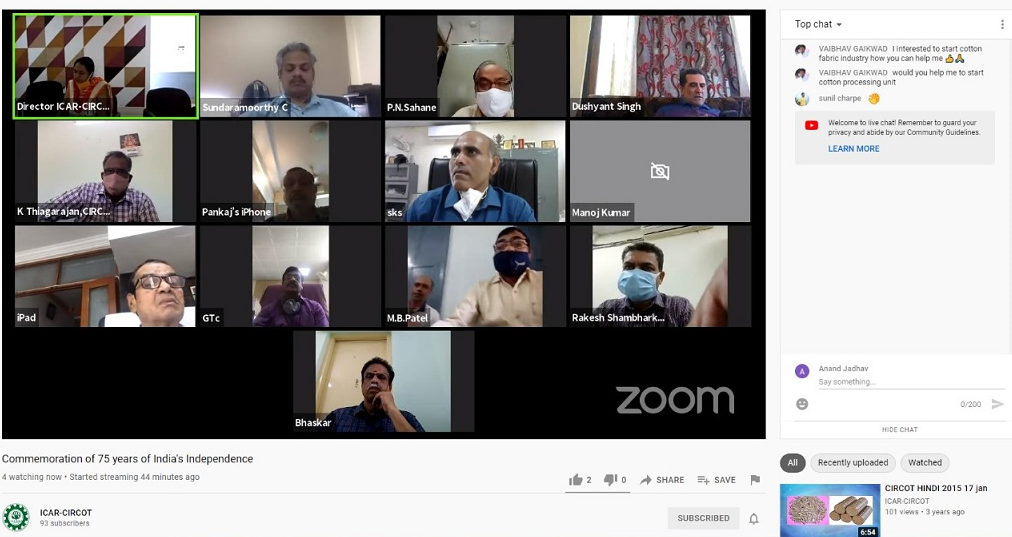
- Back to previous page
- |
-
Page last updated date:01-04-2024 12:52 PM




